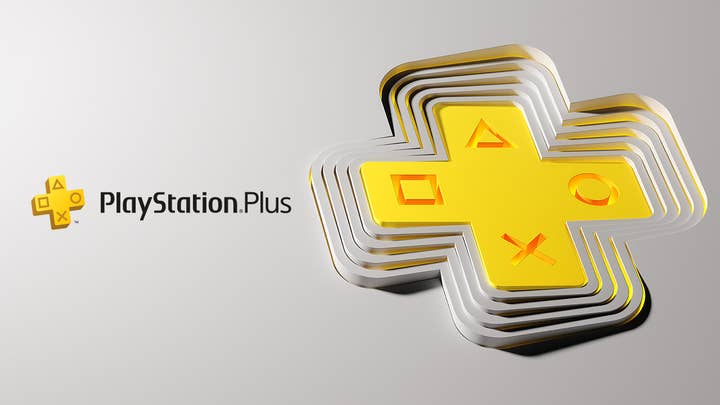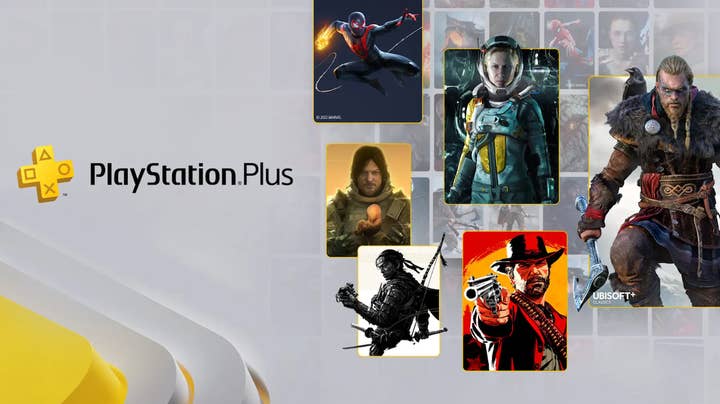New PS Plus heralds the battle of the streaming services | Opinion
Sony is still playing catch-up with its Game Pass competitor -- but no streaming service has yet hit the magic formula that will appeal to a wide swathe of consumers, so it's all to play for
Next week, Sony's new-and-improved PlayStation Plus service will launch in the UK.
It's already available in several other regions, though, so we don't expect any major surprises at the UK launch.
The details of what's included at the various tier levels of the new service are pretty clear now; these tiers range from the Essential tier that replicates the price and functionality of the existing PS Plus, via the Extra tier which offers a large library of PS4 and PS5 games, up to the Premium tier which adds a grab bag of retro games and game streaming functionality.
At both the Extra and Premium tiers, this service is set up to compete more or less directly with Microsoft's Game Pass, albeit with the important caveat that Sony won't be putting its first-party titles on the subscription service at launch (at least not initially -- I remain convinced this policy will be walked back in the coming years).
Given the pricing and the huge size of the PS4/PS5 library being made available on the more high-end tiers, they're actually a pretty robust offering. This is, in essence, the Game Pass alternative that many people believed Sony would never offer; day-and-date launches for first party games aside, most consumers would probably find what Sony's offering in the new PS Plus very competitive with Microsoft's service.
There are a handful of areas where [Sony] lags behind, with perhaps the least tangible but most important of them being the clear branding and communication of Game Pass
Sony hasn't caught up with Microsoft entirely in this regard -- aside from the launch-day games issue, there are a handful of other areas where they lag behind Game Pass, with perhaps the least tangible but most important of them being the clear, effective branding and communication of the Game Pass product, compared to the rather muddled branding of the new PS Plus.
Still, compared with the last time Microsoft's service offering outstripped Sony's -- back two generations ago, when the Xbox 360's polished, effective online services left PS3's in the dust -- the reaction from Sony this time has been much faster and more effective.
The next question, of course, is how these services evolve now that the competition between them is really in place -- and while the challenge for Microsoft remains the same as it has been since the outset of this generation (it needs blockbuster software, and it needs it soon), it's really Sony that still needs to do the running in terms of building up its subscription services to compete on an even level.
One peculiar and very obvious comparative failing in Sony's offering is the company's continuing failure to offer software emulation for PS3 games, which remains an absolute head-scratcher.
A limited library of PS3 games can be played over a cloud streaming service (which, not to put too fine a point on it, is still either completely unworkable or just a crap experience for a pretty wide swathe of gamers, most of whom have precisely zero options to improve that situation given the uncompetitive nature of broadband markets in many, if not most, regions), but there's no way to download and play PS3 games through emulation on the PS5.
It's really Sony that still needs to do the running in terms of building up its subscription services to compete on an even level
That might not sound like a big deal, but given that the entire selling point of the Premium tier is the access it provides to retro titles, the absence of PS3 emulation blows a huge hole right through the middle of their back catalogue -- and moreover, it's right at the sweet spot where Microsoft's offering absolutely shines, with Xbox 360 titles with boosted resolution and framerate being a hugely compelling part of the Game Pass retro offering.
PS4 games aren't old enough to get those nostalgic emotions surging. PS1 games and many PS2 titles look pretty bad on modern TV hardware. But PS3 and Xbox 360 games are at the perfect point where they're old enough for people to be nostalgic for them, and yet modern and playable enough to be a great back catalogue addition with only the most minor of emulation tweaks.

Of course, Sony's challenge here is greater than Microsoft's -- the PS3 was its last great effort at making an architecturally unique console, based as it was around the Cell processor that it co-developed with IBM and Toshiba -- but amateur developers have got PS3 emulation up and running on PC hardware significantly less powerful than the PS5, so I'm sure a similar feat can't be beyond the capacity of a hundred billion dollar company.
Back catalogue in general, though, hasn't been a sufficient priority for Sony thus far, and even leaving aside the lack of a PS3 emulation function, the whole retro aspect of PS Plus remains anaemic.
The company at least moved quickly to fix a problem where older games were being presented with lower PAL region frame rates rather than running at the preferable NTSC region speeds, but the fact that such a thing even managed to get through testing without being noticed feels emblematic of the lack of care and attention paid to this whole side of the business within Sony.
There was definitely a point not so long ago where backwards compatibility with significantly older hardware was a bit of a white elephant -- something people argued about on internet forums, but which few consumers actually used -- but in recent years the tables have turned as gaming demographics have changed, making this into a hugely commercially important part of the service offering. I'm not sure how long it's going to take for that message to sink in for PlayStation's decision makers.
Back catalogue hasn't been a sufficient priority for Sony, and even leaving aside the lack of a PS3 emulation function, the whole retro aspect of PS Plus remains anaemic
Still, if you're a consumer simply looking for PS4 and PS5 games, as a great many potential customers will be, and willing to overlook the lack of launch-day first-party titles, then this is a very solid service. Still, browsing through the large selection of games now included in my slightly-more-expensive monthly subscription, I was struck by the fact that in updating its services, Sony has ended up taking the same very unwelcome position as Microsoft in terms of the game catalogue it offers in one crucial and perhaps under-appreciated regard.
Here's the thing: the prior incarnation of PS Plus (which, it should be emphasised, remains part of the service now as well) was focused around the concept of "monthly games," which could be added to your library and then remained yours to play freely forever, as long as you remained a PS Plus subscriber. You could tuck a game away in your library and return to it while browsing idly years later; no time limit, no expiration.
In some regards this was a weird approach, and could be a little frustrating -- once the monthly games were gone, they were gone forever, so anyone subscribing later on wouldn't be able to access them through PS Plus. It was, however, a godsend for gamers with limited time -- whether that's due to work and family responsibilities, or for any other reason -- because it meant that your library of subscription games was there for you whenever you actually did have time, to play at your leisure.
That is not the paradigm found on Game Pass, and now in Sony's extended service tiers. Here, you have a game library that's much more extensive, and all of it is available to every subscriber -- which is great -- but with the exception of first-party titles that are more-or-less guaranteed to stick around forever, the whole library is in flux, with titles from third-party publishers prone to disappearing at the whim of commercial agreements and contracts that, to the end-user, seem entirely arbitrary.
No service is truly appealing across the full swathe of the industry's audiences, which means that it's still all to play for in terms of who becomes a market leader in this increasingly important sector
If you're a consumer with a ton of time on your hands, a notification saying "play this game this month, it'll disappear after that" might just seem like a fun reminder to engage with a game you haven't got around to yet. If you're someone who is much more time-restricted, or if you've simply been enjoying going through a game at your own pace, that kind of message is an absolute buzzkill and may make you wonder why you're paying for this kind of service at all.
This is an idea that has been lifted, of course, from Netflix-style services -- streaming video services generally have similar approaches to third-party content, which comes and goes from the service according to the whim of the contracts between the streaming platform and the IP holder.
One could argue that what happens on Game Pass, and will now happen on PS Plus, is no worse than a long TV show disappearing from a streaming service before you've had a chance to watch all the episodes, though to that comparison I'd note that it also absolutely sucks when streaming services do this, and definitely harms consumers' perception of the platform, which is a major part of the reason why platforms like Netflix have been desperately trying to pivot away from streaming other companies' shows and towards a heavier share of Netflix Originals.
I'd also argue that consumers' investment in a game they're playing -- not only building up a character or other in-game aspects to their own preferred play style, but also developing skills and knowledge about the game itself -- can often be much deeper than engagement with a TV show. Moreover, if a TV show moves to a new streaming platform, you can just follow it there (assuming you have a subscription) and resume from the last episode you watched; generally, the lack of save game portability across platforms prevents this for video games.
It's hard to say how significant a factor this kind of volatility in game libraries will actually be -- but the chances are that it will become more and more of an issue as game subscriptions trickle down to an increasingly casual audience of players.
No game service is ever going to be everything to everyone; but building a truly successful one requires a very broad view of who your players and customers are and will be, and creating something that's an appealing offering for everyone from the core to the casual, and from the nostalgia-tinted retro-obsessed fan to the trend follower who only plays the latest and greatest.
Thus far, no service is truly appealing across the full swathe of the industry's audiences, which means that it's still all to play for in terms of who becomes a market leader in this increasingly important sector.

